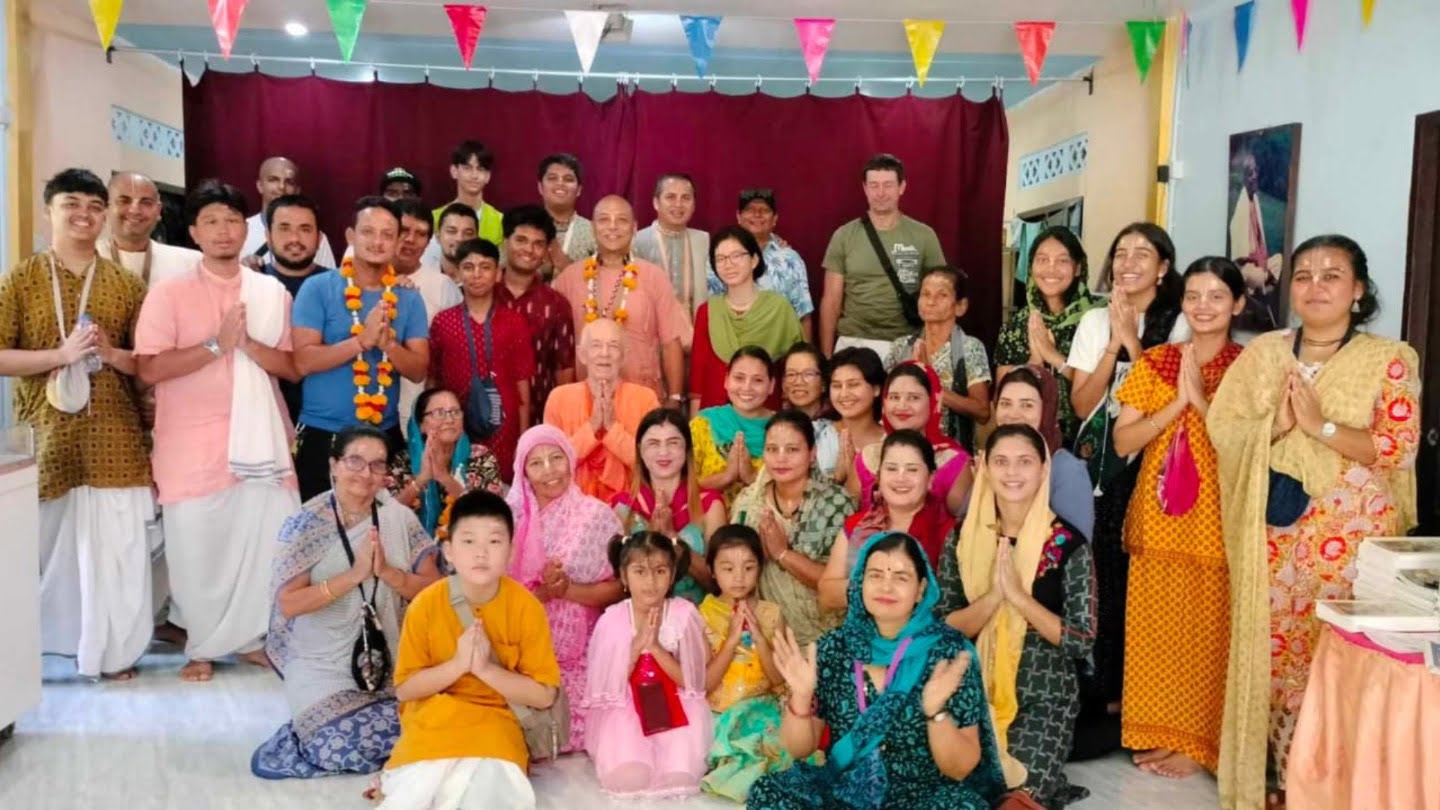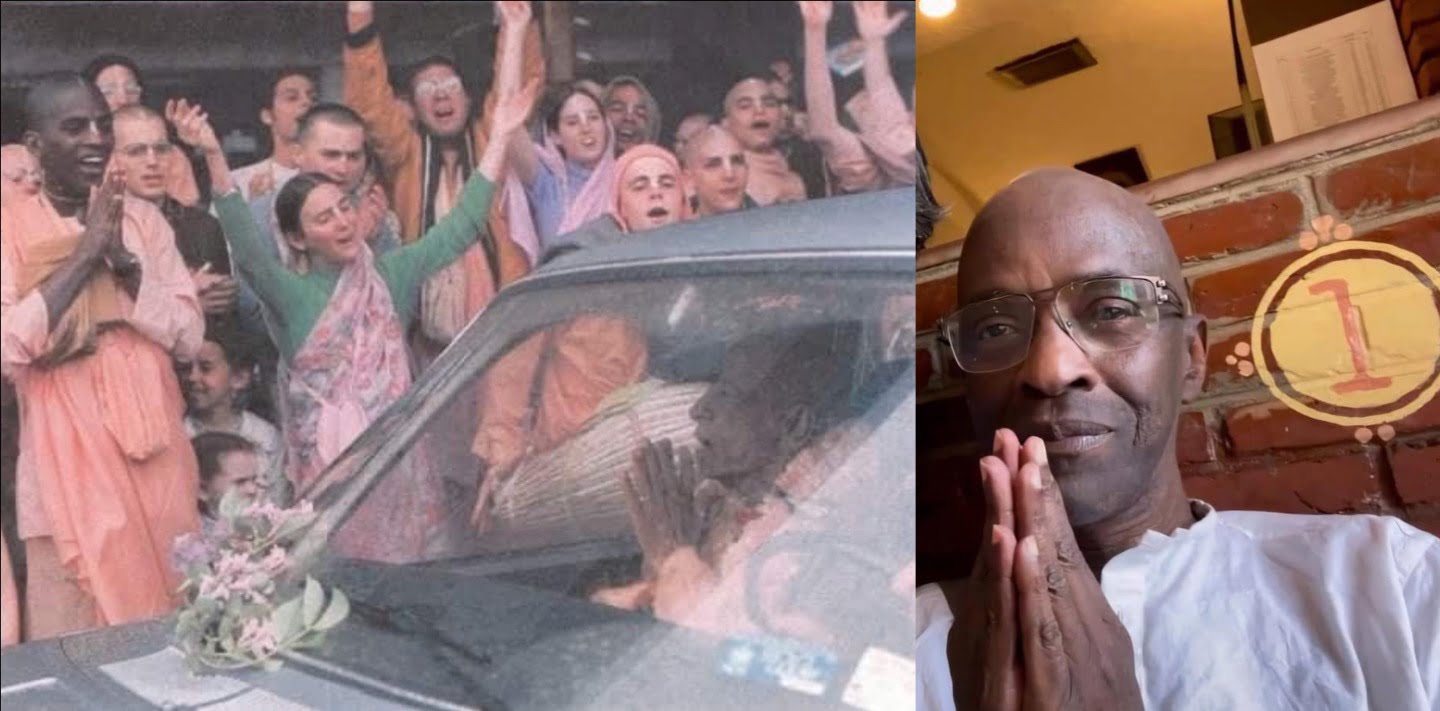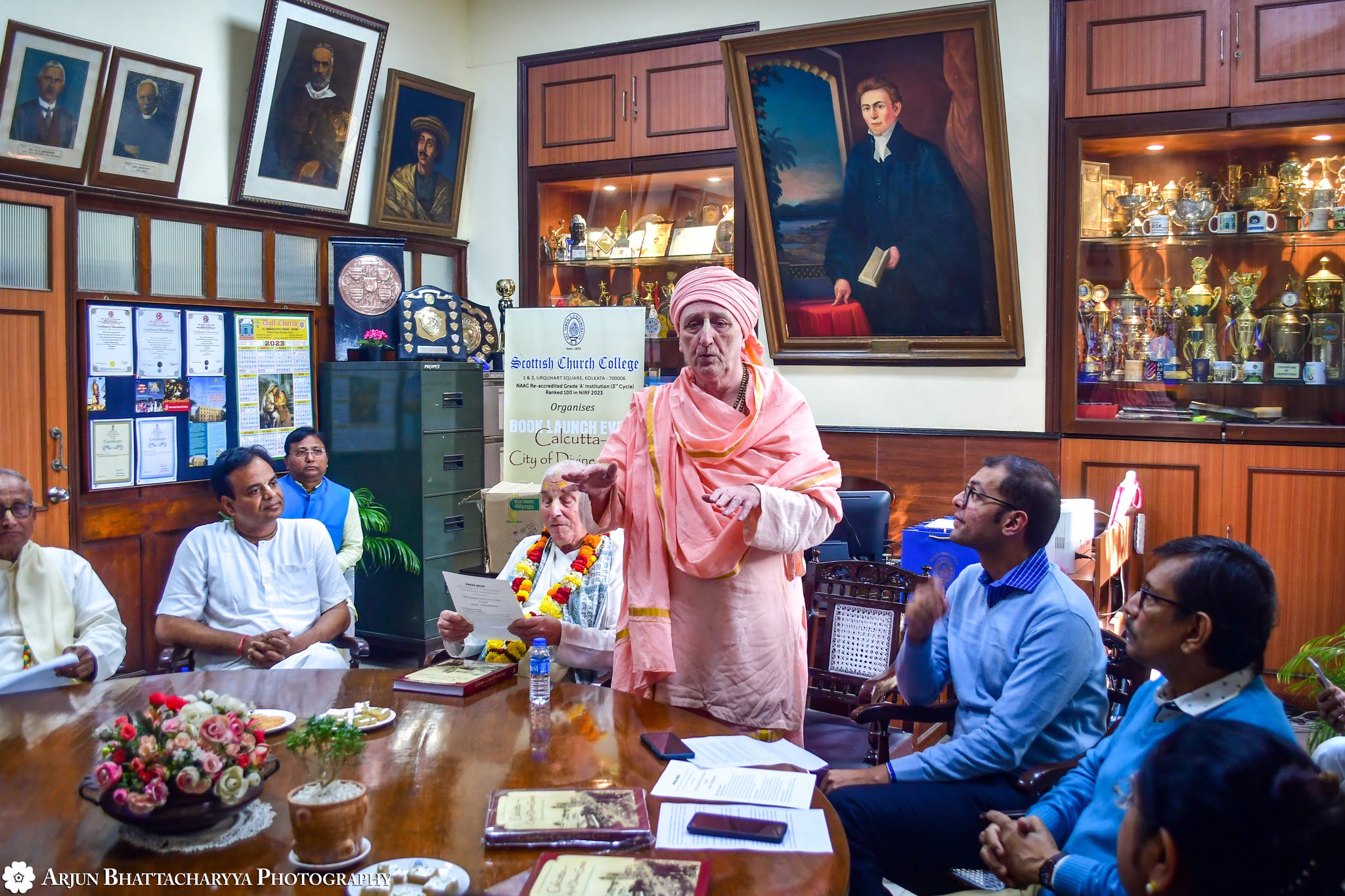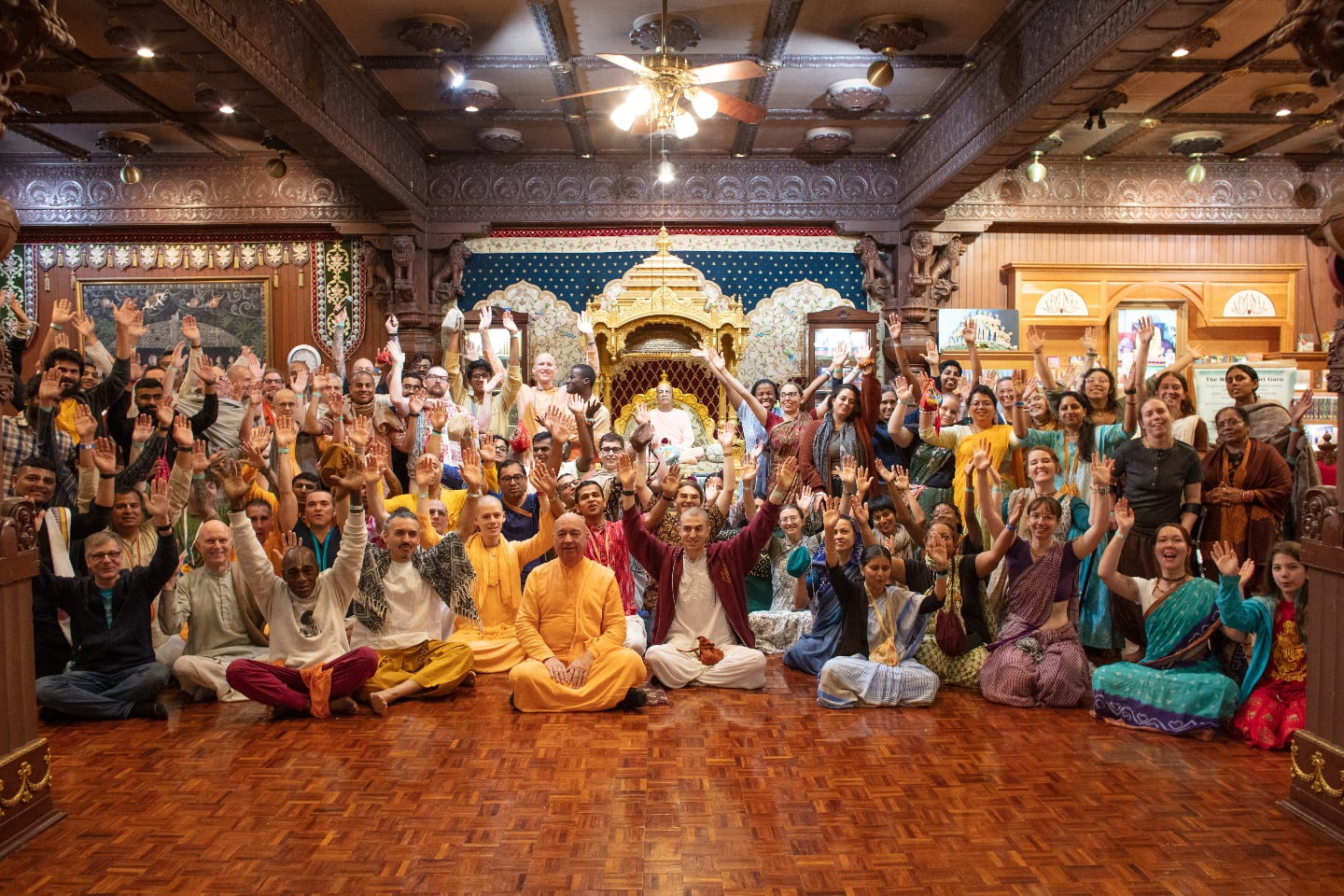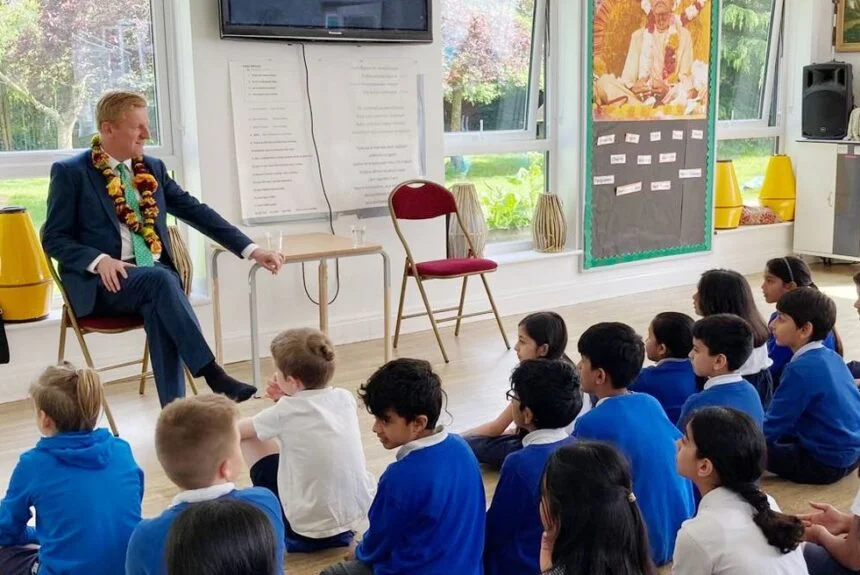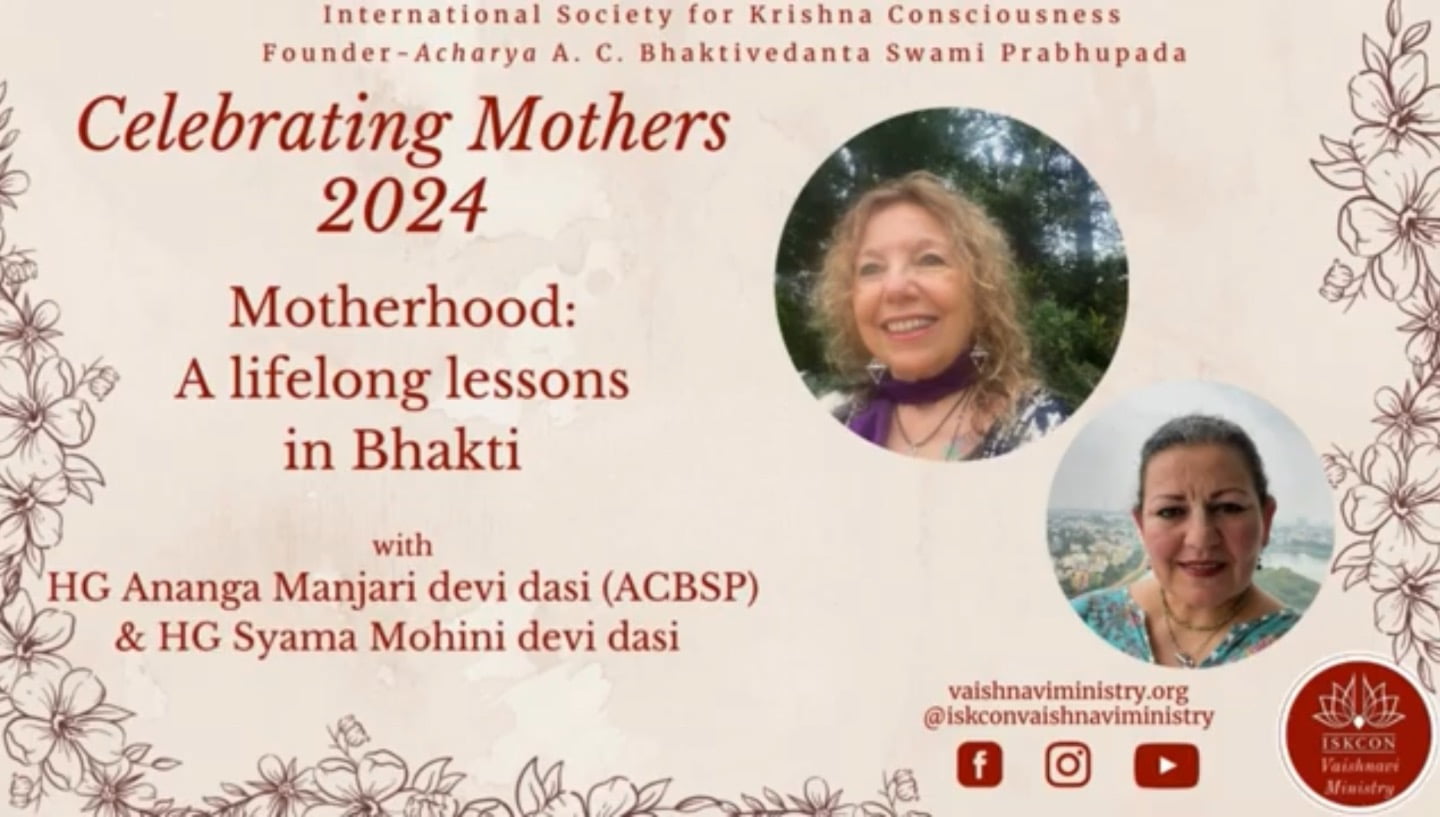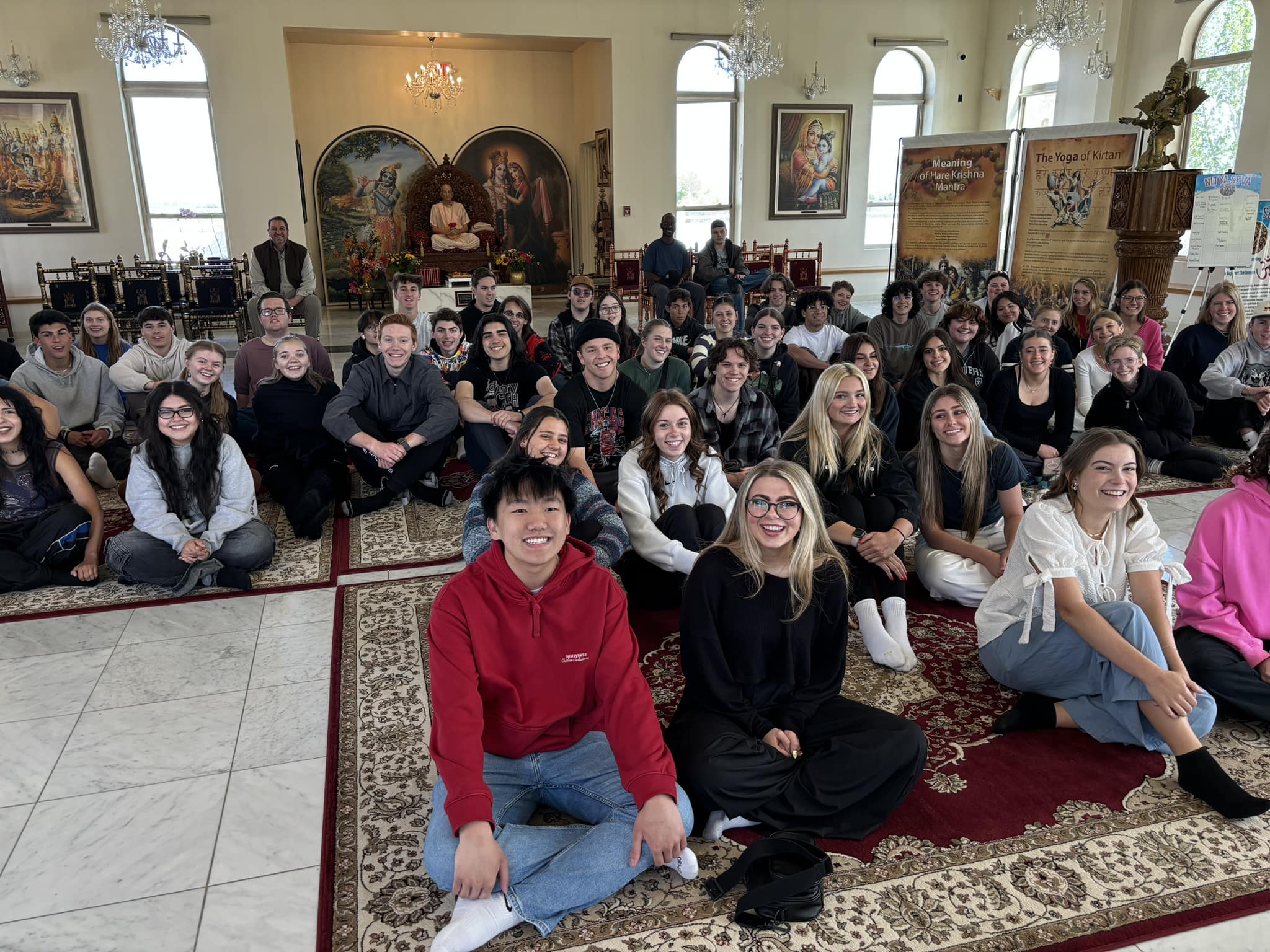Homeschooling Krishna’s Children
By Madhava Smullen | Авг 23, 2008

When Ananta-Rupa Dasa and Arudha Dasi enrolled their five-year-old son Radhika Ramana in a private school, they expected impressive results. But sitting in on his math class, Arudha noticed that although he had finished his work, his teacher was too busy with her other students to challenge him further, and he was bored with nothing to do. Most schools, Arudha realized, cater to the needs of average students – above average children were bored, and below average children were frustrated.
Her confidence in the school system was further shaken when her younger son Gopal came home from kindergarten complaining that his teacher didn’t stop his classmates from teasing him about his Hare Krishna hairstyle and lunch menu. On top of that, she would openly kiss her boyfriend in front of the children when he came by to visit.
Arudha decided that this was not a healthy educational environment. She had grown up in a Vaishnava family from Allahabad who kept cows, celebrated festivals such as Janmastami and Nandotsava with aplomb, distributed food to holy men, and didn’t watch any movies apart from the Ramayana and Mahabharata. She wanted her sons to be Krishna conscious devotees of good character. She wanted to read them stories from the Srimad-Bhagavatam and teach them how to play mrdanga. But they were tired when they came home from school, and it was difficult to get them into a devotional frame of mind.
So she decided to teach them herself.
A Curriculum with a Difference
“I was nervous and unsure of how to homeschool at the beginning, so I used the Calvert curriculum,” Arudha says. “But when I realized it left no time for devotional learning, I soon stopped.”
Arudha’s new curriculum, devised when Radhika Ramana was seven years old and Gopala Hari five, was daring and unique: It was based almost entirely on Srila Prabhupada’s Srimad- Bhagavatam. “When they were small, we read mainly translations, and the stories kept them intrigued,” says Arudha. “We discussed the spiritual lessons, and as our discussions became deeper the children were naturally drawn to the purports to answer their questions.”
The results of this unorthodox teaching method were stunning: just by reading the Bhagavatam for two or three hours daily, Radhika and Gopala gained excellent language and comprehension skills. Within five years they were they reading at college level, and were skilled in English, critical thinking, debate, and communication.
But Arudha wanted her boys to have more than intellectual knowledge of the Bhagavatam’s teachings – they had to pick up practical experience and talents, too. Since she and her husband Ananta-Rupa ran the ISKCON preaching center in Boise, Idaho from their home, she had no difficulty involving her sons in arranging preaching activities at the city’s libraries, interfaith events, schools and colleges. “We contacted establishments to see if they were interested in hosting programs on Vedic culture and philosophy,” says Arudha. “Then we planned for each event by practicing different tunes of the maha-mantra, deciding on the contents of the talk, and cooking sweets to distribute.”
Although Arudha and her husband organized and presented the programs, their children would participate in the talks, explaining their devotional attire, eating habits and musical instruments. They’d also chant and distribute prasadam and books. They loved how these programs broke up their routine and taught them things they could never have learned just sitting in a classroom. And by the age of ten, they had taken up much of the event leadership themselves.
“One learns something best when one teaches it,” Arudha explains. “By preaching, answering questions, making friends, and responding to challenges, the child’s faith in Krishna becomes stronger and he or she gains a greater understanding of the philosophy. Furthermore, by preaching, the devotee child automatically learns many skills that are taught separately in most schools and colleges — such as public speaking, marketing, debate, interpersonal communication, and conflict management.”
All these activities filled Radhika Ramana and Gopala’s entire day, so that they had no time for TV, video games or anything else that would contribute towards dullness and materialism. “Since for devotees the main purpose of homeschooling is to raise a Krishna conscious child,” Arudha says, “A Krishna conscious lifestyle is the most important basis of home education.”
Any spare time her sons did have was filled by deity worship, which she introduced them to at only three and five years old. This utilized their natural playfulness, and they would spend two to three hours at a time absorbed in dressing, bathing, feeding and decorating their own four-inch Gaura Nitai deities. “Deity worship is a natural way of evoking love of Godhead in a child that any amount of explaining will not do,” Arudha says. “It’s an essential ingredient in educating children because it trains the mind to focus on Krishna, and to be clean and punctual. It also teaches the importance of offering everything to Krishna, bowing down, chanting, dancing, cleaning the temple, making flower garlands, decorating the deities and observing festivals.”
Social Skills and Success
At this point, you may be thinking, “This is all well and good, but wouldn’t children in a homeschooling environment – especially such a busy one – miss out on the healthy social interaction that private or public school provides?”
Arudha would respond with a resounding “No.” Her children got all the peer interaction they needed at the temple, doing play practices, preparing for festivals, distributing prasadam, and chanting and dancing in harinams.
Homeschooling parents can also connect with other devotee families in their area so that their children can make friends – Arudha often invited Radhika Ramana and Gopala Hari’s devotee friends to sleep over at their house.
Arudha thinks that it’s important for children to interact with adults, too. “Prabhupada said that if our children simply copy their parents and elders, they will be well trained and not spoiled by an artificial standard of sense gratification,” she explains. “And that’s easy to do – in Krishna conscious culture, we read the same books, attend the same festivals, wear the same kind of clothes and even have similar entertainment such as chanting, dancing and feasting. There’s no generation gap. Modern children are not encouraged to mingle with adults, and so develop their own subcultures with their own music, language and clothing. They also miss the chance of learning responsibilities and good wisdom.”
And as for the social interaction in outside schools, it’s not quite “healthy,” as far as Arudha’s concerned. Once, feeling guilty about not giving her sons enough friends to play with, she had them join a soccer group in the city. When they told her that the other kids were using bad language and talking about their girl friends, and that they preferred playing with their friends at the temple, she took them out again.
There are many examples of children picking up bad habits and values from outside schools. One Seattle devotee mother told Arudha that she couldn’t connect with her son anymore when he started going to public school. He would turn on the TV as soon as he came home, had stopped listening to her and would argue with her on everything. Now that she’s homeschooling him, however, he is a different person.
A Boise mother with four children had the same experience with her seven-year-old. But now, after four years of homeschooling, he is respectful to all elders, attends all the morning Bhagavatam classes at the temple, helps with preaching activities in schools and colleges, and is an accomplished mridanga player.
And it’s not only the spiritual side that homeschooling nurtures. When Arudha’s sons took the standardized tests to measure their progress every year they were always three or four grades higher than average public school children – a fact that statistics on homeschooling reinforces. And when they went to college at the incredibly early age of twelve, they surprised even their mother by handling American history, geography, science, English literature, humanities, anthropology and sociology for the first time without difficulty. “They scored high in every subject, and their teachers commented that their understanding and maturity was better than the other kids in their class,” Arudha says.
Today, her eldest son Radhika Ramana dasa (Ravi Gupta) is a professor of Hinduism at the College of William and Mary in Williamsburg, Virginia. After graduating from the University of Oxford with a Ph.D. in Vaishnava Theology, he wrote his dissertation on Jiva Gosvami’s Sat-sandarbha, which has since been published as a book. His younger brother, Gopal, is following in his footsteps and doing his Ph.D. in Science and Religion at Oxford University.
Arudha insists that this level of success in not unique to her children. “Other homeschooled kids following the Bhagavata teaching method are faring the same,” she says. “There are several in Boise — one American devotee boy here just started college at twelve and is doing very well both spiritually and materially.”
Only Gain, No Loss
So what if you want to homeschool your children? How do you know where to start?
To answer these questions and other concerns, and to help devotee homeschoolers connect with each other, Arudha has started the Krishna homeschooling Yahoo group. You can visit www.krishnahomeschool.com or write to her at aruddha108@yahoo.com.
“There’s a growing number of Krsna conscious homeschooling families around the country, so one can get plenty of support and encouragement,” Arudha says.
Among these is the Vaishnava Homeschoolers group, also on Yahoo. There are also secular homeschooling organizations in every region which offer curriculum resources, testing facilities, and legal advice. You can find these organizations in your area by doing a search on the Internet.
Finally, there’s www.iskconeducation.org, started by the GBC Ministry of Educational Development. It aims to provide a resource center and networking facility for devotees involved in education, and also features a column on homeschooling.
For many devotee parents, home schooling is their only option. They’d rather not send their children to public schools or far-away boarding schools, and gurukulas are few and far between these days. Yet a gurukula environment can easily be recreated at home, with the parents as gurus and the house as the asrama (kula).
According to Srila Prabhupada, children born into devotee families are not ordinary children and should be given great care. “Taking birth in a family of devotees means that the children have done some devotional service in their past life and are here to finish their work and go back to Godhead,” Arudha says. “If we neglect this and don’t give them the proper training so that they can advance to the topmost level, we are doing a great disservice.”
“Homeschooling is an effective way of giving our children the atmosphere and training they need to lead a life of service to Krishna even while they perform their material duties,” she concludes.
“So go for it wholeheartedly. There is only gain, no loss.”





